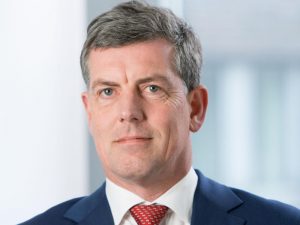Spotlight: Dubai Metro
An example of effective solutions in public transport systems can be seen in how Serco Middle East effectively delivers essential public services punctually and seamlessly.
Amidst the presence of modernised public transport solutions across today’s most advanced cities in the world, one of the key challenges that these systems continuously face is the burden presented by an overcrowded public transport segment. Simply put, an overcrowded public transport system will result in crowding challenges across stations, terminals and the vehicles itself.

Safety is of course the most important concern, but crowd behaviors can also have key impact on operations, such as irregularities, delays, and affecting the whole attractiveness of the public transport system. A decreased comfort level longer travel time and psychological and emotional distress can also impact wider mobility patterns in cities and shift commuters to less sustainable modes.
Serco’s Middle East Middle East (ME) Division continued to oversee the provision of world-class services to Dubai’s public transport sector throughout 2019 via supporting the Emirate’s Roads and Transport Authority’s (RTA) integrated transportation modes by catering to more than 1.3 million passengers daily on the Dubai Metro.
Streamlined services
Equipped with years of experience and the required tools, Serco ME’s team enhanced its position as a leading provider of transport operations and integrated traffic management services in the region through successfully managing the high volume of passengers across both red and green lines while implementing effective crowd control services measures throughout the entire period of various special events ranging from the religious and other annual national holidays.
By attaining years of experience in operating railways globally and working in partnership with its clients and an array of competent professionals, Serco devised a wide range of crowd control scenarios that were ready to be deployed if and when required, including client communication, safety arrangements, security measures, operational controls and maintenance preparations.
The high confidence that the RTA has placed in Serco to deliver a world-class level of safety, operational performance and customer service was reflected this past March when the organisation signed a contract with Serco extending the operation and maintenance of the Dubai Metro to 2021.
Metro usage on the upswing
“Public transport has witnessed a surge in popularity globally in recent years and rising congestion in urban areas, including Dubai, is a primary factor. As a result, there is pressure to guarantee that existing public transport infrastructure is utilised to its maximum capabilities in order to serve customers’ needs and ensure their satisfaction,” remarked Alex Rentier, Managing Director, Dubai Metro and Tram, Serco ME.
“We at Serco are always prepared for such growth and fully believe in continued development in terms of financial efficiency of public transport. This is proven with us successfully as we deliver operational performance levels on the Dubai Metro with a high train service availability of 99.9 per cent and a punctuality of 99.7 per cent in 2018, with 204 million journeys throughout the same period,” he continued.
Rail Icon
“The Dubai Metro has evolved to become an established icon of the regional and global transport industry and we take great pride in our partnership with RTA – who have played a huge role in the development of integrated and sustainable transportation systems for Dubai’s residents and visitors,’” he added.
Serco are the first rail operators in the Middle East and have set the benchmark for rail management expertise, providing world-class services and a safe operation to the public and the communities it serves.
In addition, they interact directly and effectively to manage congestion, while practical solutions such as flexible queue management and station entry budgeting are incorporated into all crowd control plans – which are always developed and executed in close cooperation with relevant stakeholders such as building owners, police and emergency services.
